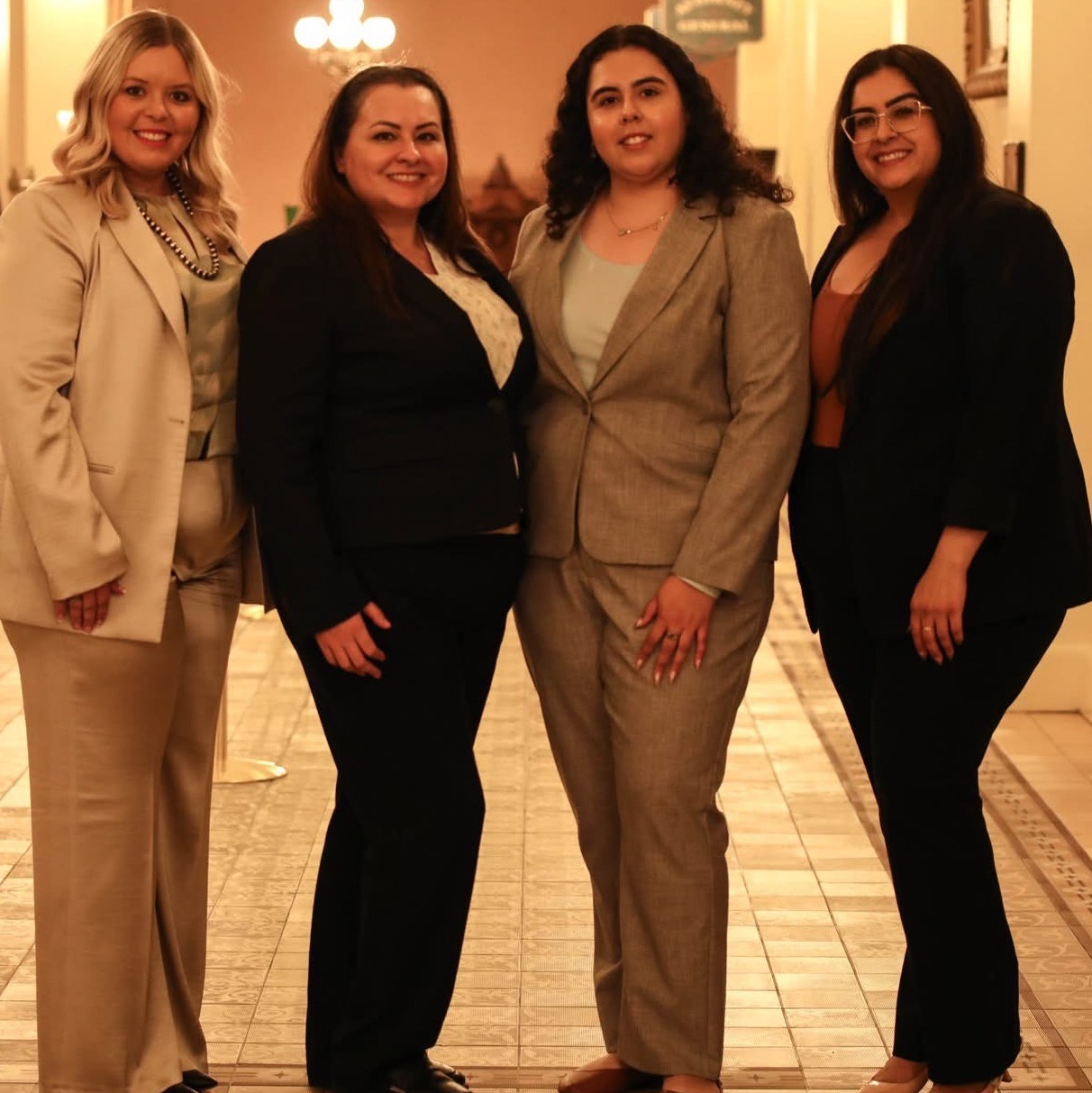Top Story
Oct. 8, 2025
New law lets California law students be paid for for-credit externships
Gov. Gavin Newsom on Friday signed AB 1155, a McGeorge clinic-originated bill requiring California law schools to allow students to receive compensation for professional externships that also carry academic credit, effective Aug. 1, 2026.





What started as a student brainstorming session in a Sacramento classroom has now become California law. On Friday, Gov. Gavin Newsom signed AB 1155, legislation requiring law schools across the state to allow students to be paid for professional externships even while earning academic credit.
The bill's journey began last August inside McGeorge School of Law's legislative clinic, where students were encouraged to think up ideas that could become real policy. Among them was Citlali Perez, who graduated in May. She said she remembers the project starting as open-ended discussions with classmates Bailey Morrell, Diana Crow, and Mahima Karia.
She gave Morrell credit for articulating the specific idea that became AB 1155. Seven months later, Morrell and Karia testified before the Assembly Higher Education Committee. Perez and Crow provided "me too" testimony after their presentations.
Their argument was straightforward: the cost of law school in California is crushing, and unpaid externships are a luxury many students can't afford.
"Law students face extraordinary financial pressures, with the average JD degree in California costing up to $175,000 and housing prices ranging from 20 to 70% higher than other regions because California's law schools are mainly located in the Bay Area, Los Angeles, San Diego and Sacramento regions," Morrell told lawmakers. "These costs disproportionately burden students from disadvantaged backgrounds who must often sacrifice valuable experiential learning opportunities because unpaid externships are economically unsustainable."
Beginning August 1, 2026, AB 1155 requires every California law school to permit students to accept pay from externships that also carry academic credit. The law does not mandate that externship sites pay students. Instead, it removes school-level barriers that prevent students from being compensated if an employer chooses to offer it. Compensation is defined broadly, including stipends, travel reimbursements, hourly wages, parking permits, and other benefits.
The law also bars any promise of future employment by either the student or the employer. The measure passed the Legislature without a single "no" vote.
Perez said the measure reflects broader trends. In 2016, the American Bar Association lifted its longstanding ban on students receiving both pay and credit for externships. That change opened the door, but schools responded unevenly.
"We just wanted to make it even across the board so that all law schools, both ABA-accredited and California Bar-accredited, would allow their students to get paid if the site offered it," Perez.
She said Crow and Morrell both took unpaid externships. Karia worked as a law clerk for the Sacramento Municipal Utility District, which wanted to pay her, Perez recalled, but the school said no.
Perez said her own law school career "definitely" would have been different if AB 1155 had been in place. Many externships in Sacramento, where McGeorge is located, are with public agencies that offer at least some pay. Even a few thousand dollars, she said, could help increase the income and ethnic diversity that many in the legal profession want to see.
"I left with a lot of debt," Perez said. "We're just trying to make it a little bit more obtainable. It's definitely a diversity question as well."
Recent years have seen significant growth in law school costs in California. According to the State Bar's 2019 California Law Student Survey, between 2008 and 2018 the average total tuition for ABA-accredited law schools in the state rose 39%, to nearly $157,000. Three-year tuition costs for California-accredited schools vary widely but have reached about $75,000, according to bill analyses. These reports also said AB 1155 will not impose new costs on law schools.
"Every student deserves the opportunity to pursue their passion for justice without financial hardship standing in the way. AB 1155 ensures that California's education system reflects the values of access and inclusivity and reaffirms our commitment to leveling the playing field so all students can build a career in public service free from financial barriers," said the bill's author, Assemblymember Mike Fong, D-Alhambra, in an email.
The bill also garnered support from a variety of labor and student groups. In an April support letter, the Evening Student Bar Association of Loyola Law School argued that without pay, an externship actually costs a student money for "rent, food, and transportation."
"Low and middle-income students, who are disproportionately young people of color, simply cannot afford to take internships in state agencies or non-profits that do not pay them for their work," wrote the group which represents night school student.
California may now be out in front of a national trend. Last year, the University of Washington School of Law changed its policy to allow compensation for externships with nonprofit, judicial, or government entities, but kept its ban for for-profit placements. Meanwhile, the ABA passed a resolution calling on states and law schools to adopt policies allowing students to receive both pay and academic credit for externships.
Malcolm Maclachlan
malcolm_maclachlan@dailyjournal.com
For reprint rights or to order a copy of your photo:
Email
Jeremy_Ellis@dailyjournal.com
for prices.
Direct dial: 213-229-5424
Send a letter to the editor:
Email: letters@dailyjournal.com


